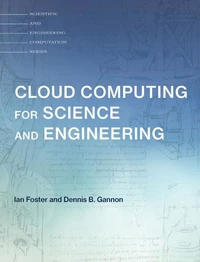In 1998, Ian Foster and Carl Kesselman introduced a whole new concept in computing with the first edition of this book. Today there is a broader and deeper understanding of the nature of the opportunities offered by Grid computing and the technologies needed to realize those opportunities. In Grid 2, the editors reveal the revolutionary impact of large-scale resource sharing and virtualization within science and industry, the intimate relationships between organizational and resource-sharing structures, and the new technologies required to enable secure, reliable, and efficient resource sharing on a large scale. Foster and Kesselman have once again assembled a team of experts to present an up-to-date view of Grids that reports on real experiences and explains the available technologies and new technologies emerging from labs, companies, and standards bodies. Grid 2, like the first edition, serves simultaneous1y as a manifesto, design blueprint, user guide, and research agenda for future Grid systems.
In 1998, Ian Foster and Carl Kesselman introduced a whole new concept in computing with the first edition of this book. Today there is a broader and deeper understanding of the nature of the opportunities offered by Grid computing and the technologies needed to realize those opportunities. In Grid 2, the editors reveal the revolutionary impact of large-scale resource sharing and virtualization within science and industry, the intimate relationships between organizational and resource-sharing structures, and the new technologies required to enable secure, reliable, and efficient resource sharing on a large scale. Foster and Kesselman have once again assembled a team of experts to present an up-to-date view of Grids that reports on real experiences and explains the available technologies and new technologies emerging from labs, companies, and standards bodies. Grid 2, like the first edition, serves simultaneous1y as a manifesto, design blueprint, user guide, and research agenda for future Grid systems.
